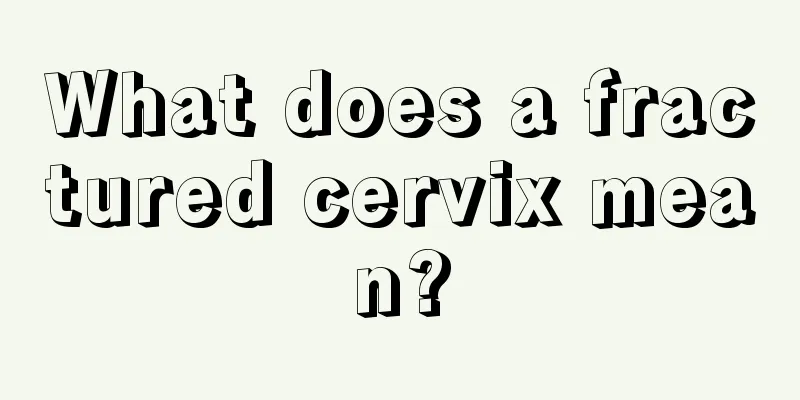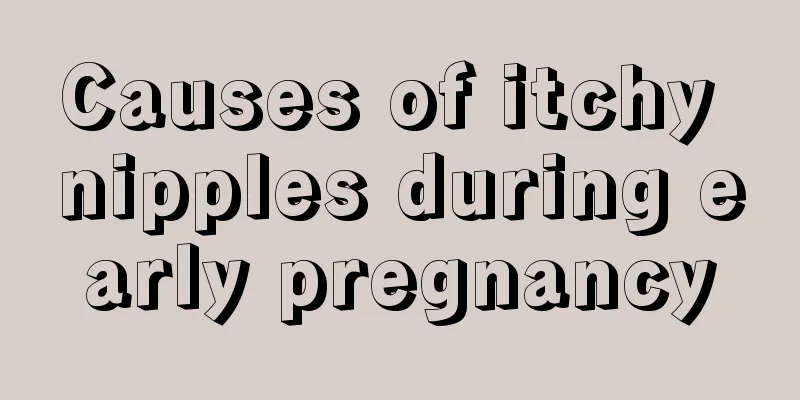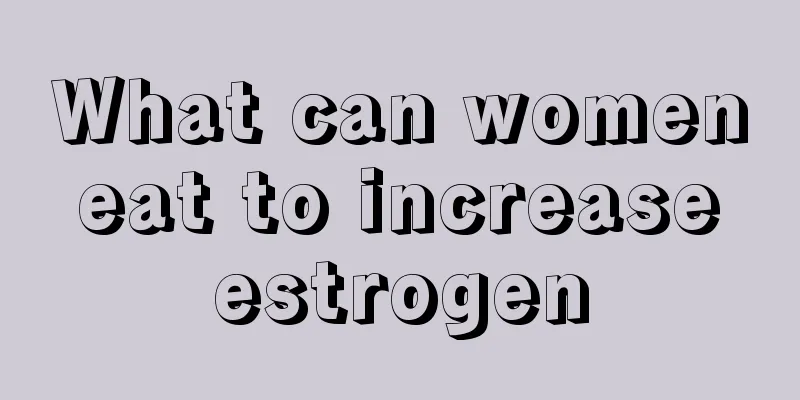What is the cause of follicular cysts

|
There are many causes of follicular cysts, including physiological and pathological reasons. Generally, there are no conscious symptoms and they are only discovered through some gynecological examinations or cesarean sections. Some of them can also cause rapid endometrial hyperplasia and postmenopausal vaginal bleeding symptoms. 1. Causes The causes of follicular cysts involve both physiological and pathological aspects. The occurrence of cystic follicles and follicular cysts is due to: ① dysfunction of the hypothalamus-pituitary-ovarian axis; ② thickening of the ovarian tunica albuginea and obstruction of follicle rupture; ③ the fetus and newborn are affected by hormones secreted by the placenta and maternal hormones. 2. Clinical manifestations Follicular cysts generally have no symptoms and are discovered accidentally during gynecological examination or cesarean section. The cyst will be absorbed and disappear naturally after 4 to 6 weeks. In some individual cases, the continued secretion of estrogen by the follicles causes excessive endometrial hyperplasia and postmenopausal vaginal bleeding, which may cause pseudo-precocious puberty in young girls. 3. Differential Diagnosis 1. Cystic granulosa cell tumor Cystic granular cell tumor is composed of a single granular cell, which is in a proliferative state and has easily visible nuclear division, which is significantly different from the degenerative changes of the cells in this disease. 2. Cystic corpus luteum pregnancy Granulosa cells and theca cells are significantly luteinized, with yellow rosette-like structures preserved at the edges, which are caused by pregnancy and are different from the luteinization of follicular cysts. IV. Treatment 1. Clinically asymptomatic No special treatment is required, and regular follow-up is sufficient. 2. Surgery Ovarian cyst removal can be performed for patients with obvious symptoms. If the cyst ruptures or twists, causing acute abdomen, unilateral adnexectomy may be performed. 3. Children with precocious puberty It is caused by excessive secretion of central gonadotropin and should be treated with drugs. 4. Interventional treatment It is an emerging discipline developed in recent years. It is a minimally invasive treatment using modern high-tech means. That is, under the guidance of imaging equipment, special instruments are placed in the body to operate outside the body to treat lesions in the body. Therefore, it has the characteristics of no surgery, little damage, quick recovery and good effect. |
<<: What is the reason for the ovarian follicle not rupture
>>: Can deer placenta cream cure uterine cold? Female friends, please read this carefully.
Recommend
Does your child feel uncomfortable here or there when reading? Beware of this problem!
If your child complains to you that his eyes are ...
How long should I use a belly belt after a caesarean section?
Caesarean section is the preferred method of deli...
"Health from eating" series | What to do if you have a sore throat? Four things to do and two things to avoid when protecting your throat in autumn and winter
With the arrival of autumn and winter, the number...
The first wrinkles appear in summer. Three factors make you age faster.
Everyone wants to look younger, and wrinkles make...
Will hyperthyroidism affect menstruation in women?
Menstruation is a sign of every woman's matur...
What to do if cervical erosion and heavy bleeding occur
For women or female organisms, the uterus is one ...
What is the reason for postpartum bleeding?
Some mothers may have some examinations after giv...
How old is a girl when she starts menstruation
When a person is just born, his bones are very fr...
Emergency contraception and pregnancy after one month
Because birth control pills are very harmful, it ...
Where is the female pelvis located?
The female pelvis is a relatively important part,...
Why does breast hyperplasia not hurt? The reason is actually this
There are many reasons for breast hyperplasia. Th...
Is black blood clots during menstruation a sign of detoxification?
Women have a menstrual period every month. Althou...
Find the right time to detoxify and double the detoxification effect
Introduction: If you don’t know whether you need ...
Will fumigating moxa cause delayed menstruation?
Moxibustion is a treatment method in Traditional ...
What are the sequelae of coccygeal fracture in women
Because the structure of the human body is very c...









